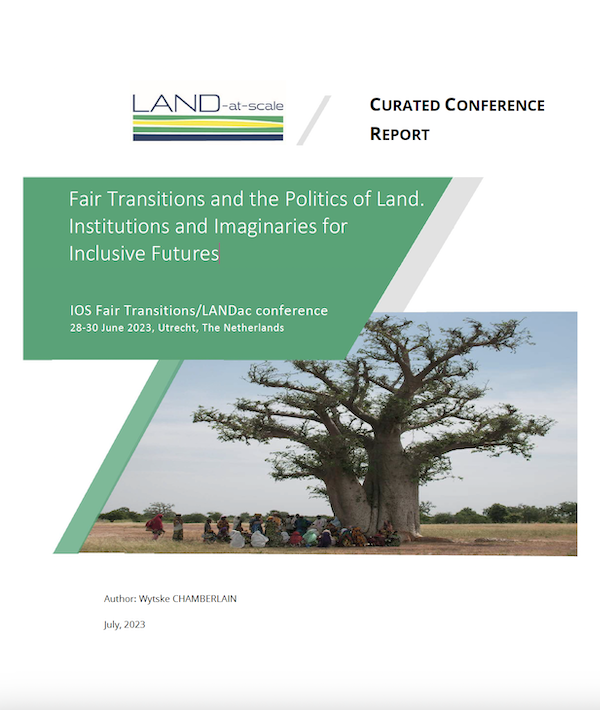Resource information
Questions about how land is governed and controlled in the context of multiple crises are key to debates about fair transitions. The energy transition, net-zero ambitions, nature protection, and food system transformation all involve claims on land, water, and forests. How these claims are framed, analysed, and governed, how access to land is organised, and who gets a seat at the table to discuss key decisions are questions of urgent concern from both a fair transitions perspective and a land governance perspective. Key note speaker Prof. Mark Jackson (University of Bristol, UK) questioned the idea of the table as institution and presented the audience with an alternative imaginary of a gathering around the palaver tree for inclusive participation and freedom to conceptualise topics such as land and transition, and to include nature as actor in the conversation. As he posited: “Land is alive”. Dr. Fatima Denton (Director of United Nations University Institute for Natural Resources in Africa) contrasted the theoretical approach by presenting the many practicalities faced by communities living on and from the land: Land is life. Together, the key note speakers set the stage for the conference and the main discussions on who sets the narratives, what is fair, and what is the role of land governance in the current debates on climate change?

